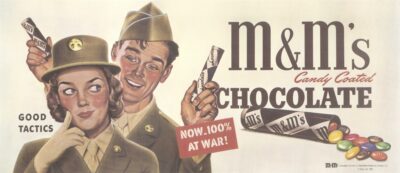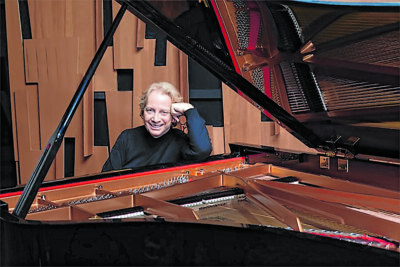“He now belongs to the ages.”
So claimed Ben Jonson, William Shakespeare’s friend and contemporary upon the man’s passing in 1616 at age 52. Which has turned out to be the case.
Shockingly, it almost wasn’t so. Ten years after the man’s death, two of The Bard’s fellow actors, John Heminges and Henry Condell, collected the man’s 36 plays and published then in a folio, one complete with the world-famous engraving of the departed playwright.
The year 2016 was the 400th anniversary of Shakespeare’s death. This year is the quatercentenary of that folio. In 1916, any number of U.S. Congressmen walked to the well of the U.S. House of Representatives to deliver mangled, but well-meaning homages to the playwright. I can’t recall the same thing happening at all in 2016. Years ago, I read that Sen. Robert F. Byrd (D—WVA) spent part of a legislative session re-reading the entire Shakespeare corpus. That I can believe.
A product of that Middle Ages, an epoch that placed much emphasis on scholarship, the young Shakespeare received a classical education. He duly studied Latin and Greek. He was especially drawn to Plutarch’s Lives, the famous series of brief biographies on the giants of the Roman Empire. In college, I had a professor who claimed that the playwright had a copy of that book on his deathbed.
Shakespeare married at 18 to Anne Hathaway, the prototypical girl-next-door who was eight years her husband’s senior. The couple had three children, one of whom, Hamnet, died at a young age. His early manhood is known as Shakespeare’s “lost years.” Was he teaching for a living? Acting? Writing? In time, the young father made the move to London to support his family through theatre work.
Right place, right time. Both Queen Elizabeth I and her successor, King James, placed a premium on the arts. They subsidized London theaters and Shakespeare joined such peers as Jonson and Christopher Marlowe, in creating a new epoch, one that came of age as England itself was taking its first steps toward modernity. The English feudal system was being obliterated by the rise of commercial society. Shakespeare’s work, in part, was to take a glance backward to the ideals of honor, chivalry, and duty lest they be destroyed for good.
The ancient Greeks were famous for their bluntness. In their prose and verse they got straight to the point. Elizabethan England placed an emphasis on the language. Verse was more important than visuals. Shakespeare and his contemporaries had their work cut out for them. The man rose to the challenge. For this piece, I re-read only one play, King Richard III, a drama about a Hamlet-like king (he had that same sweet nature) who overplays his hand with a rival Count Bolingbroke, stealing land from the man and losing his kingdom in the process. John Gaunt, a legendary commander in the king’s army, lays out the stakes in this ode to the British Isles:
This royal throne of kings, this sceptered isle,
This earth of majesty, this seat of Mars,
This other Eden, demi-paradise,
This fortress built by Nature for herself
Against infection and the hand of war,
This happy breed of men, this little world,
This precious stone set in the silver sea,
Which serves it in the office of a wall
Or as a moat defensive to a house,
Against the envy of less happier lands,
This blessed plot, this earth, this realm, this
England.
What modern writer can match that eloquence? My choice would be Alexander Solzhenitsyn expressing his affection for Mother Russia. On the American front, there is the ringing poetry of Walt Whitman, which is stirring but lacking Shakespeare’s tragic sense. The American answer to The Bard must be Robert Frost’s “The Gift Outright,” an ode to American history and the American landscape. I fear that few Americans today are even allowed to express such love. (Concerning modern England, go with the immortal G.K. Chesterton: “While other talked of freedom, England talked of ale.”)
The Elizabethan emphasis on language goaded the man into greatness. Only consider the words the man literally invented: mountaineer, schoolboy, football, fair play, shooting star, radiance, dawn, ladybug, eyeball, love letter, mimic, zany, excitement, lonely, gloomy, useless, quarrelsome, worthless, dauntless, hot-blooded, well-behaved, successful, never-ending, laughable.
And then the timeless expressions: Every inch a king, A tower of strength, Wild-goose chase, Not budge an inch, In my heart of hearts, Eaten me out of house and home, Neither rhyme nor reason, We have seen better days.
There are my favorites: To be or not to be (stick that foot in the river of life,) There’s the rub (Do not expect many happy endings), and To thine own self be true (man’s got to look in the mirror each morning.)
Shakespeare today? One hates to ask. My children, in their high school and college days, were never assigned a play by the man, even relatively simple texts as Romeo and Juliet or Julius Caesar. Other parents have their own horror stories to tell.
Shakespeare’s words are powerful. They are not immortal. His poetry is no substitute for Scripture. Nor were they intended to be. Shakespeare wrote to entertain the throngs coming to see his plays at The Globe Theatre. Along the way, he made countless and lasting insights into the human condition.
Shakespeare’s decline matters greatly. A society without Shakespeare’s civilizing influence is destined to be a place rude, coarse, profane, and cynical. As with 1,001 great writers, the library card, plus Mr. Bezos’ Amazon, remains the last line of defense.



















